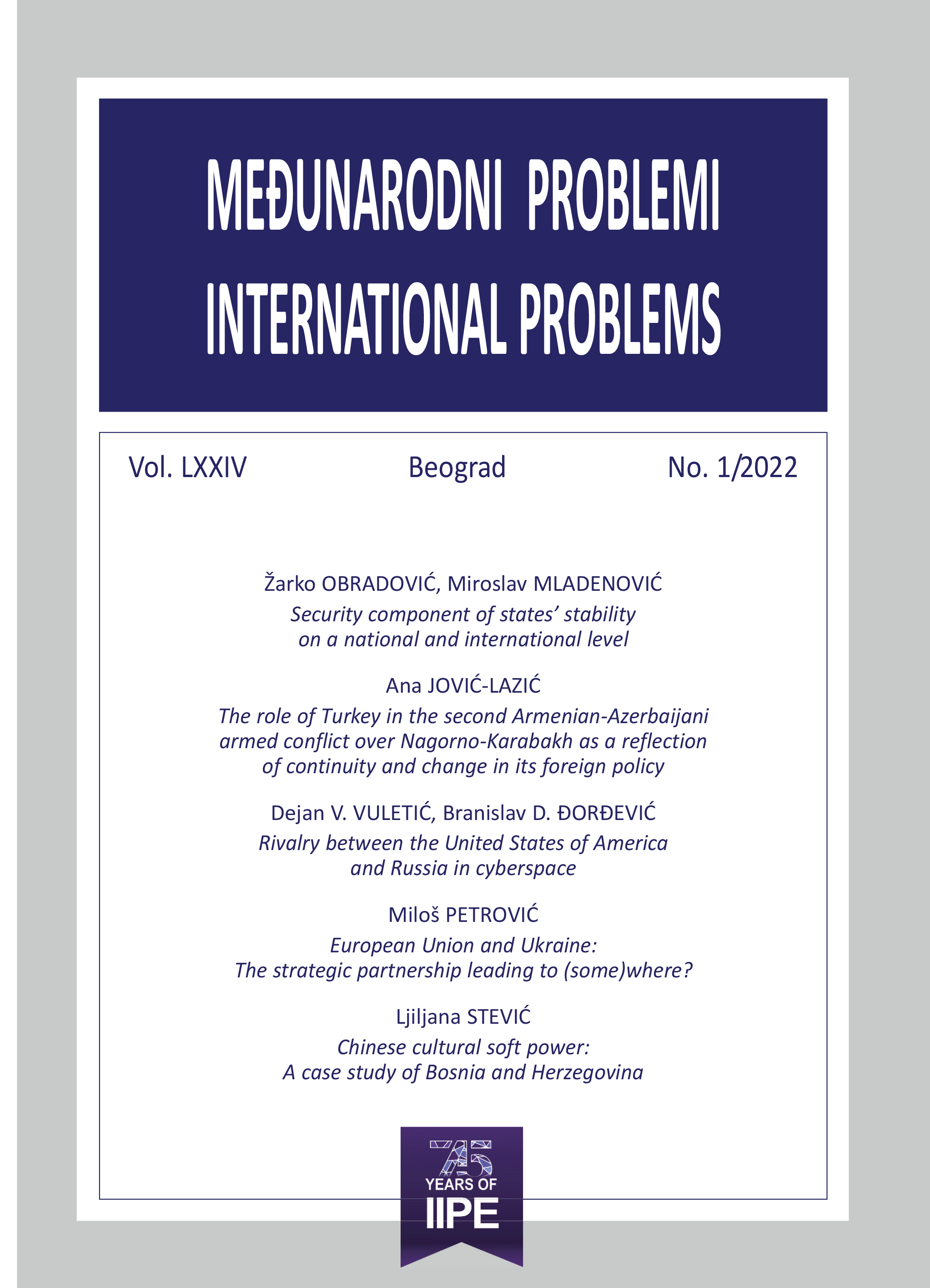Security component of states’ stability on a national and international level
Security component of states’ stability on a national and international level
Author(s): Žarko V. Obradović, Miroslav MladenovićSubject(s): Politics / Political Sciences
Published by: Институт за међународну политику и привреду
Keywords: political stability; state; security; national security system; non-state security
Summary/Abstract: The paper analyses the issue of political stability in the context of changes in the positions of major political actors. The altered role of the nation-state in the conditions of globalisation inevitably reflects on the understanding of the security phenomenon. On the other hand, the number and characteristics of security challenges and threats have increased significantly. In addition to the previously present problems, there has been an increase in drug trafficking, illegal migration, human organ trafficking, an escalation of piracy, and the criminalisation of various spheres of life. In the last two years, the world has also faced a new global security problem, this time in the field of health - the COVID-19 pandemic. Practice has shown that (in most cases) the nation-state has become weaker and less independent, and its corresponding state-centric security system is inefficient, costly, cumbersome, and inadequate to many new threats. The strength of this conclusion stems from the analysis of the functioning of the national security system in the case of terrorist attacks, but also from the study of the mechanisms used for overthrowing sovereign states under the decisive influence of external factors.
Journal: Међународни проблеми
- Issue Year: LXXIV/2022
- Issue No: 1
- Page Range: 7-27
- Page Count: 21
- Language: English

